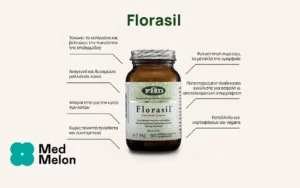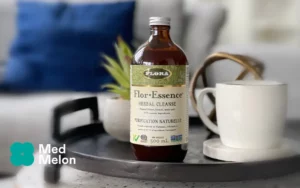Natural Sources of Zinc: Oysters, other seafood – especially shellfish, lean meats, spinach, cereals, nuts and seeds.
AnchorForms:
Standardized zinc supplements including powders, capsules and tablets.
Therapeutic Uses:
– Acne
– ADD/ADHD (Attention Deficit Disorder)
– Aging
– Alzheimer’s Disease
– Anorexia nervosa
– Antioxidant
– Attention Deficit Disorder
– Benign Prostate Hyperplasia
– BPH
– Brain Development
– Brain Functioning
– Cellular Regeneration
– Cholesterol Reduction
– Colds, Flues and Sore Throats
– Fetal Development
– Heart Disease Prevention
– High Cholesterol
– Immune System
– Impotence
– Infertility
– Liver Health Maintenance
– Macular Degeneration
– Memory
– Obesity
– Prostate Enlargement
– Prostate Health Maintenance
– Prostatitis
– Skin Lesions
– Tinnitus
– Trace Element Deficiency (RDA is 15-30 mg/daily)
– Vascular Disorders
– Viral Infections
– Wound Healing (slow)
Overview:
Zinc, otherwise known as Zink in German (a word of obscure origin) is a bluish-white, lustrous metal that was first recognized as a distinct element in the 1600s, although its ores were used since ancient times in making brass. It is an essential trace element or micronutrient needed for the proper growth of all animals and plants. It occurs throughout the earth’s crust at the level of approximately 80ppm. The human body requires it for health in small quantities (15-30mg daily). Zinc-deficient animals require 50% more food to gain the same weight of animals supplied with sufficient amounts of it. It is found in almost every cell. It stimulates the activity of approximately 100 enzymes (enzymes are substances that promote biochemical reactions in the body). Additionally, it supports a healthy immune system and is needed for wound healing. Getting adequate daily zinc can significantly help the body to resist infections. The death rate from influenza at age seventy is thirty-five times higher than at age ten, attributed to poor thymus gland activity. It rejuvenates the immune system by boosting thymus gland activity back to youthful levels. It also supports normal growth and development during pregnancy, childhood, and adolescence, helps maintain the body’s sense of taste and smell, and is needed for DNA synthesis. It is particularly important for normal prostate gland functioning and the growth of reproductive organs. It is also required to assure proper bone mineralization, collagen formation, protein digestion and the detoxification of free radical promoting metals. Additionally, it assists in the transportation of vitamin A and maintains the proper concentration of vitamin E in the blood. Animal studies have shown that a lack of zinc causes 15 to 20 percent more free radicals within the body. In humans, zinc deficiency is incriminated in causing age-related macular degeneration, infertility, cancer and Alzheimer’s disease.
Chemistry:
There are different types of zinc used in dietary supplements including: sulfate, oxide, citrate, gluconate, and zinc monomethionine. Prasad (1993) recommends zinc gluconate as a superior source of zinc because it is less irritating to the gastro-intestinal tract than the zinc sulfate commonly used in supplements. He also notes that zinc sulfate and zinc oxide are poorly absorbed and used by the body. Better absorbed are the chelated forms of zinc: citrate, gluconate and the newest, monomethionine. As an element in its pure form, is a bluish-white, lustrous metal. It is brittle at ambient temperatures but is malleable at 100 to 150°C. It is a reasonable conductor of electricity, and burns in air at high red heat producing billowing white clouds of zinc oxide smoke. Plating thin layers of it on to iron or steel is known as galvanising and helps to protect the iron from corrosion. It also acts as an antioxidant within living systems as well. It is interesting to note that although it was only identified as an element in the 1600s, zinc ores were used for making brass in ancient times, possibly even dating back to the time of Tubal-Cain, seven generations from Adam (“instructor in every artificer in brass and iron”).
Suggested Amount:
The recommended dietary allowance (RDA) for zinc is 15mg daily. The anti-aging dosage for older people is recommended at 30mg daily. Experts note that at the higher dosage of 50mg daily, no adverse effects have been seen but it is not recommended to go above this level because high doses of it can interfere with other nutrients and can lower immunity. It is difficult to get adequate daily zinc from the average diet, and even more so for vegetarians and people who are cutting down on meat.
Drug Interactions:
Zinc supplements should be taken separately from iron supplements because when taken at the same time these two minerals may interfere with the activity of the other.
Contraindications:
None known.
Side Effects:
Zinc has a very low toxicity level and there are no known serious side effects at normal dosages. Zinc supplements may cause mild nausea in susceptible persons when taken on an empty stomach. At dosages above 50mg daily is associated with reduced immune system functioning and is therefore not recommended. Acute overdose of it results in the impairment of copper absorption, nausea, stomach upset, and vomiting. In the case of an acute overdose, contact your doctor, emergency medical services (EMS), or the nearest poison control center immediately. Chronic overdose results in malfunctioning of the immune system, lowering of HDL cholesterol, heart disease, low blood levels of copper and low white blood cell count. If you suspect that you may have been getting a chronic overdose of zinc, contact your doctor. It is interesting to note that when freshly formed zinc oxide is inhaled, a disorder known as the oxide shakes or zinc chills sometime occur � but this does not pertain to mineral or supplemental sources of zinc, only to manufacturers (smelters) who may be using the pure metal.
References:
Carper, J. 1995. Stop Aging Now. HarperCollins Publishers, 10 East 53rd Street, New York, New York 10022-5299. Pp. 92-98.
Carper, J. 1993. Food Your Miracle Medicine. HarperCollins Publishers, 10 East 53rd Street, New York, New York 10022-5299. Pp. 279-280; 332-333; 335; 405; 439; 492.
Chandra, R.K. 1984. Excessive intake of zinc impairs immune responses. J American Medical Association 252: 1443-1446.
Fabris, N. 1992. Biomarkers of aging in the neuroendocring-immune domain. Time for a new theory of aging? Annals New York Academy of Sciences 663: 335-348.
Prasad, A.S. 1993. Zinc deficiency in elderly patients. Nutrition 9: 218-224.
Additional Information:
None.




